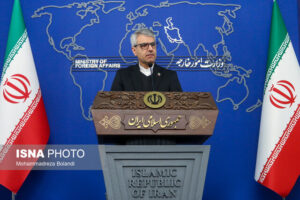According to the Persian edition of ISNA, as the possibility of Washington’s military involvement in the Zionist regime’s attack on Iran looms, a wave of opposition has emerged among prominent figures within the Republican Party. These figures argue that this war serves neither America’s interests nor the priorities of Trump’s voter base.
The Quincy Institute for Responsible Statecraft, in an analytical report, highlighted the growing divide among Republican lawmakers regarding potential U.S. military participation in the Zionist regime’s aggression against Iran. It warned that while the influence of the hawkish faction in Congress remains significant, key conservative figures are increasingly opposing this trend.
The report notes that polls show a majority of Trump-supporting voters oppose U.S. entry into a war in support of the Zionist regime, though this sentiment has not yet fully permeated Republican policymakers. Nonetheless, several prominent Republicans have explicitly warned that this war does not serve America’s interests.
Representative Thomas Massie from Kentucky is among them, posting on the social media platform X: “This war is not ours.” He has also introduced a resolution based on Congress’s war powers, calling for a ban on any U.S. military engagement with Iran without congressional approval.
Representative Tim Burchett from Tennessee has labeled pro-war Republicans “war peddlers,” stating in an interview with CNN: “We don’t need to start World War III. This isn’t the right path. The president should use his diplomatic skills—that’s why we voted for him.”
Senator Josh Hawley from Missouri, while a supporter of Tel Aviv, expressed concern about dragging the U.S. into war, saying: “I’m deeply worried about direct involvement in offensive operations against Iran. We shouldn’t enter another war in the Middle East.”
Similarly, Senator Rand Paul from Kentucky emphasized in an interview that “Israel’s war with Iran is not America’s issue.” Representative Marjorie Taylor Greene from Georgia warned that support for war with Iran among some conservatives could fracture the “Make America Great Again” (MAGA) movement. She stressed: “The American people want a better life, security, and a strong economy, not another foreign war.”
However, some Republican senators continue to back the military option. Kevin Cramer from North Dakota said he would support a U.S. attack on Iran if decided upon. Lindsey Graham has also stated that if diplomacy fails, force must be used.
The Quincy Institute warns that many Republicans still cling to outdated foreign policy approaches, while their voter base has evolved. Daniel McCarthy, editor of Modern Age, told the institute, referencing the bitter Iraq War experience: “Republicans today must not repeat the mistakes that led the country to disaster in the past.”
He also recalled the fate of the late Representative Walter Jones, who was ostracized after regretting his initial support for the Iraq War, urging current lawmakers to learn from past experiences before deciding.
In conclusion, the report stresses that joining another war in West Asia would not enhance U.S. security but could cost the Republican Party public support and damage its future standing.







